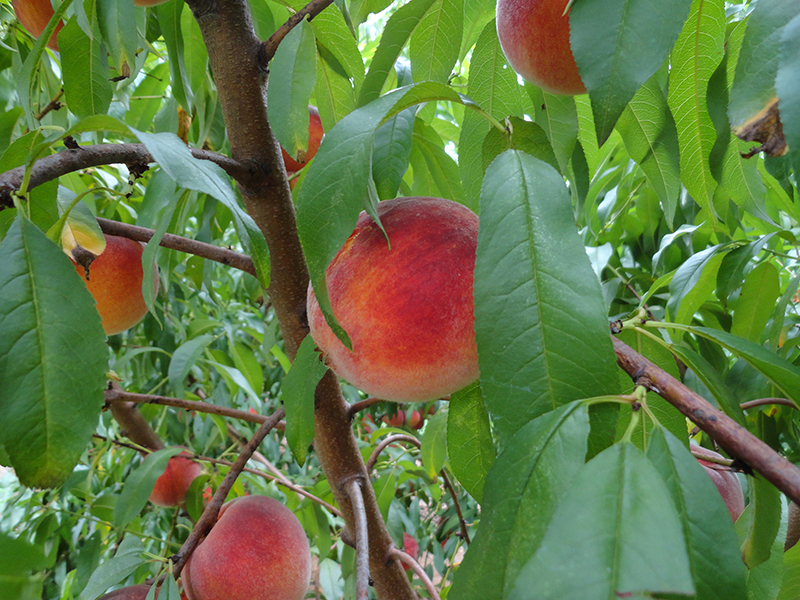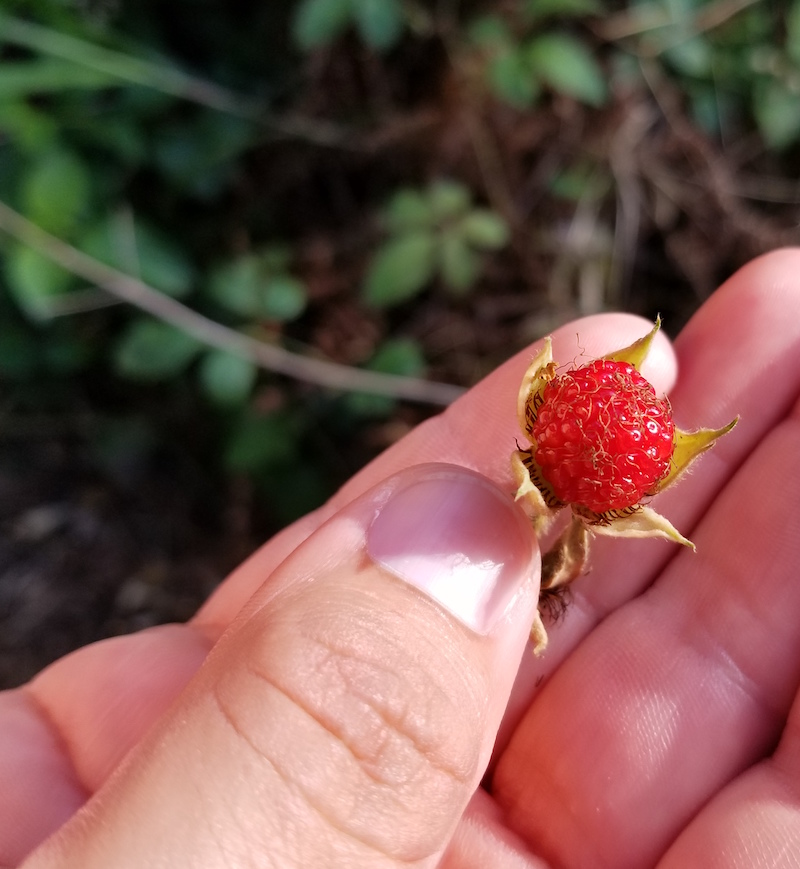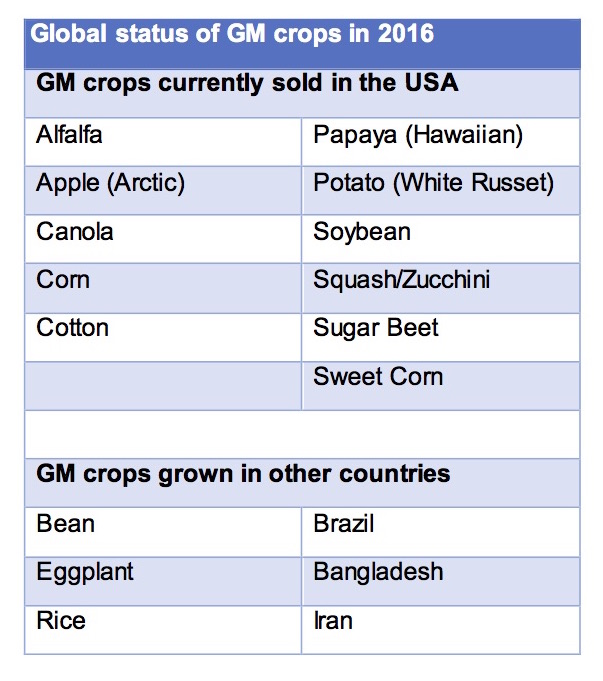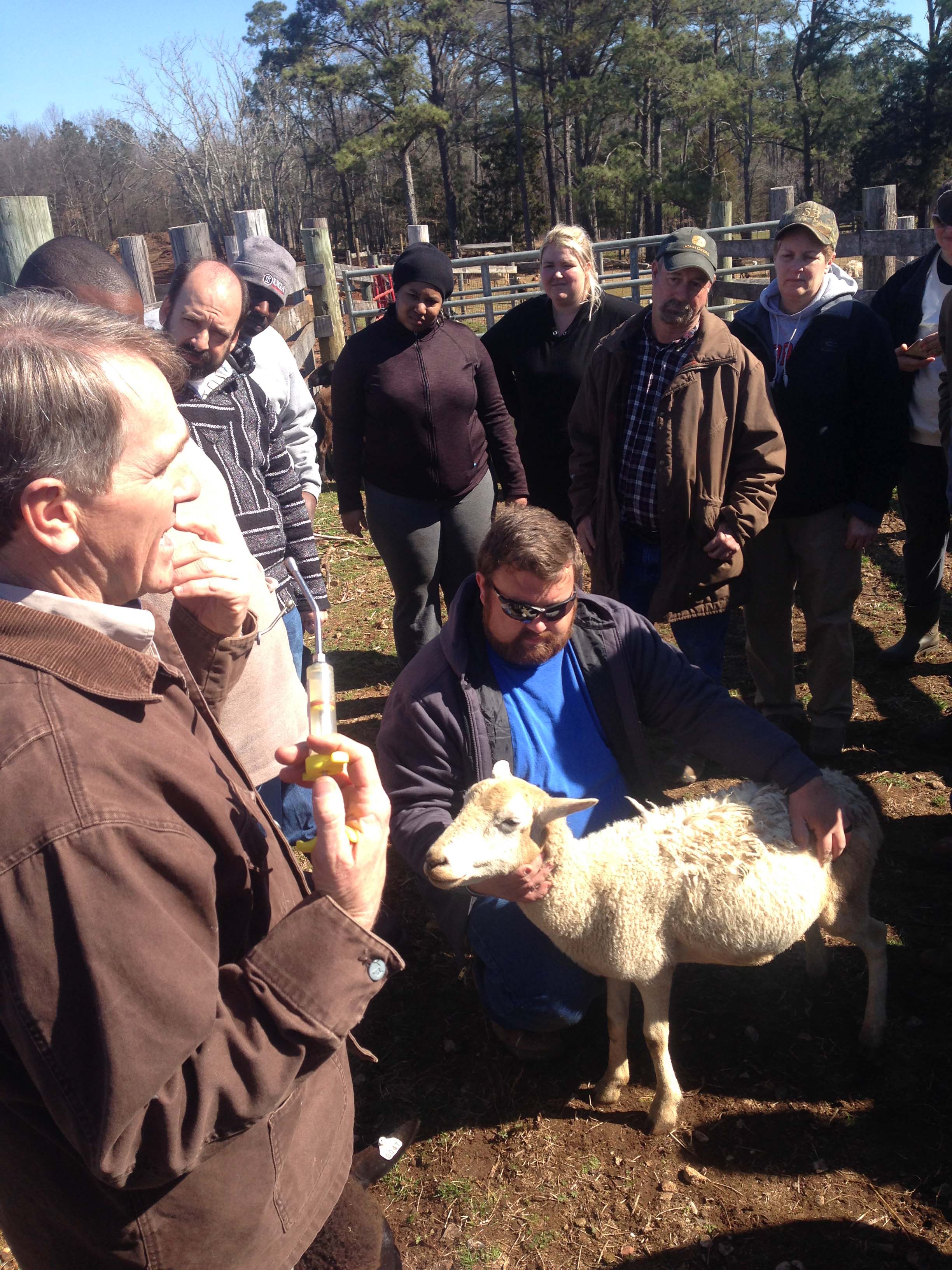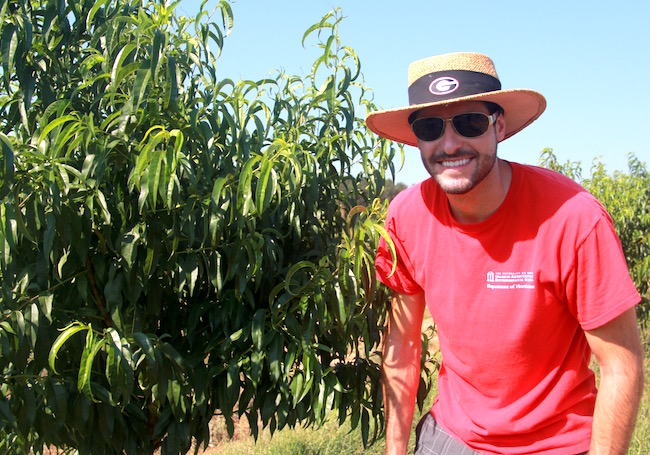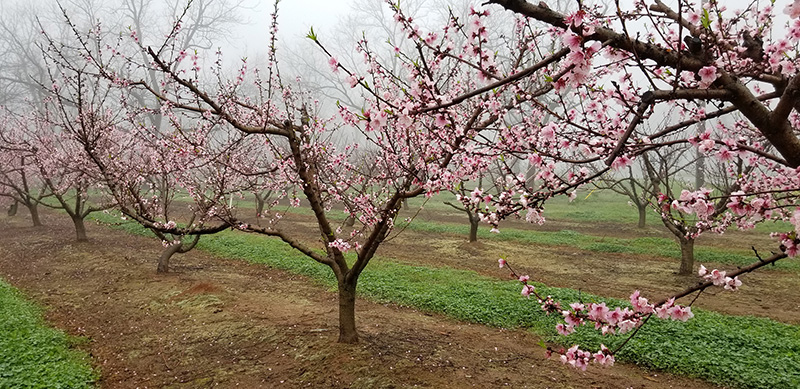 CAES News
CAES News
Peach Trees
Peach tree buds are naturally protected from freezing temperatures, but unseasonably warm temperatures in early February have some Georgia trees already beginning to bloom.

